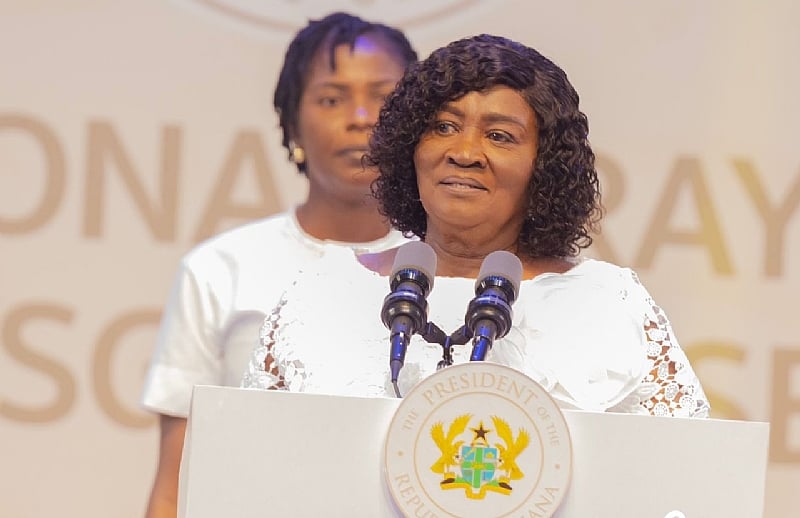The recent announcement regarding Vice President Naana Jane Opoku-Agyemang seeking medical treatment abroad has spurred public discourse and political debate. While the government maintains that the decision was based on expert medical advice following initial treatment at a local facility, the opposition has raised concerns about the implications of this action, particularly in light of previous stances against public officials seeking medical care overseas. This situation highlights the complex interplay between personal health decisions, public perception, and political positioning.
The official statement from the Presidency on March 30, 2025, confirmed that the Vice President experienced a sudden illness after work on Friday, March 28th. She subsequently received treatment at the University of Ghana Medical Centre (UGMC) on Saturday. Following this initial intervention, medical experts recommended further care abroad, prompting the Vice President’s travel overseas. The statement offered assurances that the Vice President is expected to make a full recovery and will return to her duties once her doctors advise. This timeline indicates a commitment to transparency regarding the Vice President’s health and her eventual return to public life.
The decision to seek medical care abroad has drawn criticism from the opposition New Patriotic Party (NPP), who view it as contradictory to the ruling party’s previous position discouraging public officials from seeking medical treatment overseas. This perceived inconsistency opens the government up to accusations of hypocrisy and raises questions about the equity of access to advanced healthcare for all Ghanaians. The NPP’s critique leverages this apparent contradiction to challenge the government’s credibility and potentially gain political advantage.
In response to the criticism, Felix Kwakye Ofosu, the Minister of Government Communications, defended the Vice President’s actions. He emphasized that the Vice President sought initial treatment at UGMC, a leading medical facility in Ghana, before traveling abroad. This, he argued, demonstrates that seeking local medical attention was prioritized before the decision to seek further care elsewhere was made. According to Mr. Kwakye Ofosu, the recommendation for overseas treatment came from the doctors at UGMC after assessing the Vice President’s condition and determining that specialized care beyond their capacity was necessary.
Mr. Kwakye Ofosu’s defense aims to counter the narrative that the Vice President bypassed local medical facilities. By highlighting the initial consultation at UGMC, he seeks to portray the decision as a necessary step based on professional medical advice rather than a disregard for the capabilities of Ghanaian healthcare institutions. This narrative attempts to portray the Vice President as acting responsibly and prioritizing her health while demonstrating respect for the local medical system.
This situation underscores the ongoing challenge of balancing access to specialized healthcare with promoting local medical expertise. While Ghana has made significant strides in improving its healthcare system, there remain instances where specialized treatment or advanced diagnostic capabilities may not be readily available. In such cases, seeking medical care abroad becomes a necessary option, particularly for high-profile individuals whose health can have significant national implications. This incident reignites the debate around the need for continued investment in strengthening Ghana’s healthcare infrastructure to reduce the need for overseas medical treatment and ensure equitable access to quality healthcare for all citizens. Furthermore, it underscores the political sensitivity surrounding these decisions and the need for clear communication to manage public perception and maintain trust.














